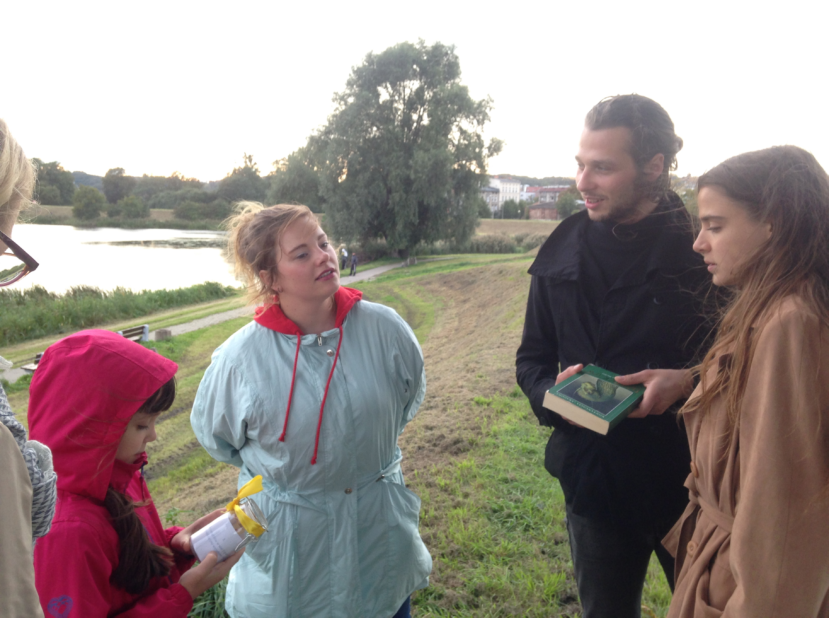 Tools and methods
Tools and methods
- Cultural planning phase Mapping
- Purpose Discovering important places, discovering stories, integration between residents
- Participants: Residents, various age groups, experts
- Number of participants: 6–20
- Author
City Culture Institute (Natalia Brylowska, Karolina Ciechorska- Kulesza, Marta Otrębska)
Tools and methods
Research game
When it is useful
A research game is an alternative method combining research with an outdoor game. This combination makes the survey more interesting and fun for the participants. Residents walk along themed routes through the neighbourhood and, at each specific point, are asked a question or given a task about their perception of the place they live in. Different age groups can take part in the game. Each of them sets its own route on a given topic – this way, we get to know the neighbourhood from the perspective of different people with different preferences and experiences. The knowledge gathered thus needs to be interpreted by people experienced in qualitative research. Wandering through a neighbourhood while completing challenges is fun, so the data we get, apart from route maps, is often in the form of impulsive answers, loose impressions and chaotic materials. In order to use them, they need to be subjected to a qualitative analysis to establish certain regularities and concrete phenomena.

Step by step instruction
- Choose a theme for your outdoor game route. This could be, for example: nature, children, future, fear, memories...
- Invite several groups of residents (e.g. representing different initiatives in the neighbourhood, such as a parish, cultural centre, association...) to prepare routes on the given topic. Each group follows the route chosen by another group.
- Place tasks and questions about the neighbourhood at specific points of the route. For instance: ‘Take photos of your three favourite places in the neighbourhood and apply a filter on your phone in the colour you associate with them.’ Tasks can be placed, for instance, in labelled boxes or jars in the neighbourhood space with clues directing you to the next point. If you have a larger team, there can be a person at each point to ask questions and direct to the next points.
- At the end of the route, a meal can be planned in a local restaurant or, weather permitting, an outdoor picnic. Participants will be able to exchange their impressions, and you can ask further questions about matters of interest to you.
- Divide the collected materials by subject, look for characteristic phenomena or emotions, and create route maps which will show you the important places. If you have no relevant experience, ask qualitative researchers for support.

